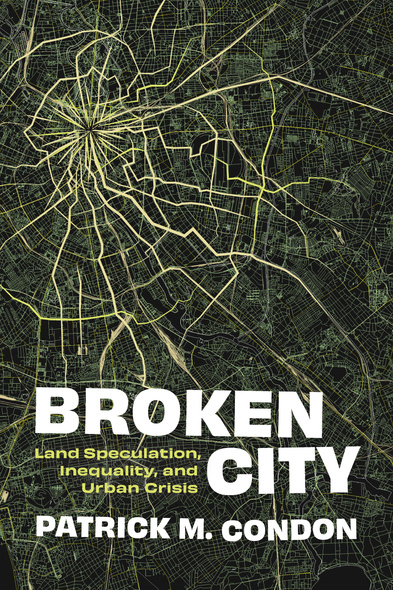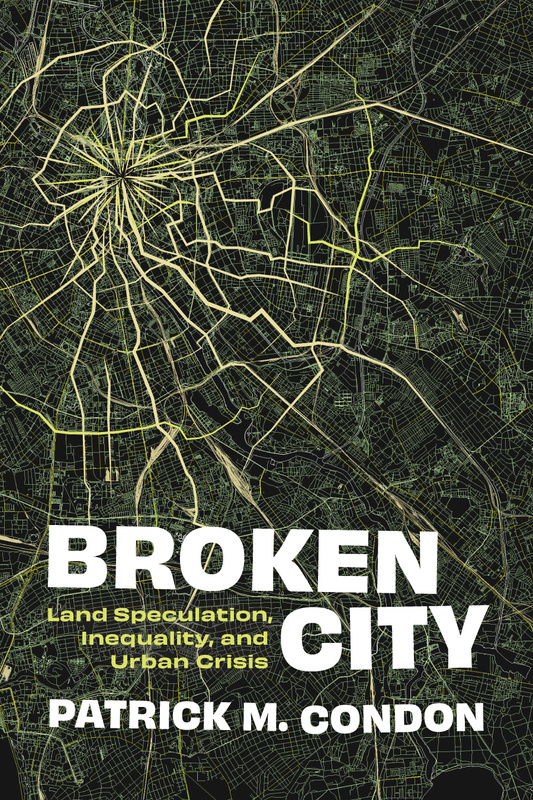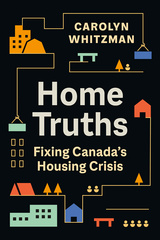
Why is housing so expensive? Patrick Condon contends that it is because, worldwide, the link between local wages and shelter pricing is broken. Many immigrants, racialized minorities, young people, and service workers are barred from joining the middle classes as they cannot build wealth through home ownership. Wages for workers, adjusted for inflation, stay flat, while housing costs multiply – a trend seen across the English-speaking world. Even when entrepreneurs open cute cafés and attractive shops, they are rewarded with rent increases that force them out of the district. Who benefits? The 1% who today own 20% of national income, versus 10% in the 1980s.
What can be done? Condon offers several examples of how cities have reclaimed land wealth from speculators and individuals for the common good and proposes a range of solutions, from ambitious ones like increasing land value taxes to quicker fixes like incentivizing construction of affordable homes, all inspired by real-world examples. Condon envisions a future where such efforts are prioritized, and land value, no longer driven by speculative investment, supports housing for the people who need it.
This is required reading for anyone puzzled by or experiencing the housing crisis, as well as scholars and students of urban planning, urban studies, geography, and political economy – particularly those interested in housing and land-use policy.
The old neo-liberal economic theory that deregulation will solve the problem of unaffordable housing is being contradicted by reality, with ugly consequences for social cohesion, mental health, urban vitality, and politics. New thinking and experiments with effective solutions addressing the problem – like those presented in Broken City – are urgently needed.
There couldn’t be a more urgent problem for cities than housing affordability, and there couldn’t be a more welcome or well-targeted book than Patrick Condon’s Broken City. With calm and thorough logic, he walks us through the thicket of misinformation and misconceptions, to show where the overlooked truths still lie: obscured by distorted land tax policy, and the stubborn persistence of obsolete supply-side dogma. Critics might miss his point that, yes, supply is a factor, but housing cost is the result of multiple factors, and there is no silver bullet. What we might need is something more like ‘silver buckshot’ – which he describes here in refreshing detail, from zoning reforms, to innovative funding approaches, to land use and the economics of sprawl. You needn’t think his argument is gospel to find this a very welcome new take on one of the central urban issues of our time.
This is an excellent book on an essential topic – the hyper-financialization of urban land – that is well-written and straightforward. The work is provocative but well-reasoned, and follows with practical policies.
Patrick M. Condon is a professional city planner, teacher, and researcher with over forty years of experience in sustainable urban design. Patrick has taught in the School of Architecture and Landscape Architecture at the University of British Columbia since 1992. He is the author of three previous books, including Seven Rules for Sustainable Communities and Five Rules for Tomorrow’s Cities.
A pioneer of public engagement, Patrick understands collaboration as a fundamental part of designing sustainable communities. He has successfully focused attention on strategies for inspiring systemic change in city-building and operations, notably in the East Clayton project in Surrey, British Columbia. More recently, he and his research partners collaborated with the City of North Vancouver to produce a 100-year plan to make the city carbon-neutral by 2107. Patrick and his partners’ work received the Canadian Institute of Planners Award for Planning Excellence and the BC Union of Municipalities Award of Excellence. Patrick Condon lives in Vancouver, British Columbia.





